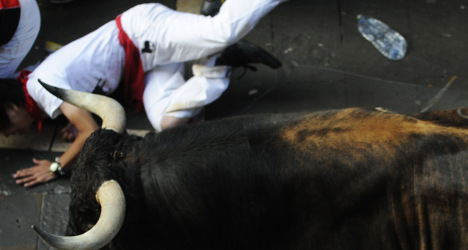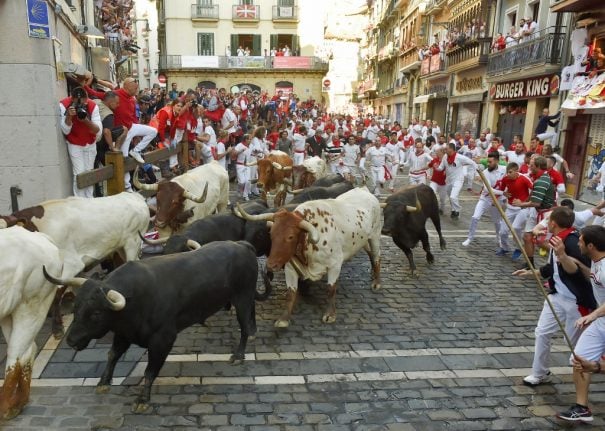Despite being an avid opponent of bullfighting, performing at the event was one of the conditions of Cruz's employment contract.
"I used to take in books and newspapers to distract myself — anything to avoid having to look at the 'medieval' action below," the 35-year-old told The Local.
But eight years ago, Cruz and one of his fellow musicians took a stand: they approached their band's management and negotiated a deal — one which has left them out of pocket, but which means they no longer have to perform during dreaded bullfights.
"We were very discreet about the process, and most of our fellow musicians were pretty understanding," the musician explained.
"Some band members argued that we had known in advance we would have to perform at the bullfights. Others supported us in theory but decided to perform for financial reasons."
SEE ALSO: Author of Pamplona survival guide skewered by bull
Cruz told The Local that support for the San Fermin festival was widespread in Pamplona but that many people — especially those living in the historic centre — also left town to escape the noise and the crowds.
He also stressed Pamplona's "peculiar" relationship with the bulls
Many locals who visit the city's evening bullfights — as opposed to famous morning 'running of the bulls' events — are actually anti-bullfighting, but come "out of tradition", he said. Parents bring their children and the habit is passed onto the next generation.
But Cruz could happily live without all of this.
"I never wanted to run with the bulls as a child, and I don't much like the other side of the San Fermin festival — this so-called botellón (mass drinking) culture," he said.
The musician said foreign tourists who come to the city during San Fermin are drawn by a mythology. But that mythology, largely fuelled by Ernest Hemingway's 1926 novel 'The Sun Also Rises', is no longer relevant.
Instead what foreign visitors find is something very different — a "city without law" where anything goes: "I understand the city lives and breathes the San Fermin festival, but I also think it's time for Pamplona to start looking at what else it can offer to visitors," he said
In the meantime, Cruz would just be happy if the municipal band would stop playing at the bullfights.
"This cruel tradition just doesn't make sense in the 21st century," he said.





 Please whitelist us to continue reading.
Please whitelist us to continue reading.
Member comments